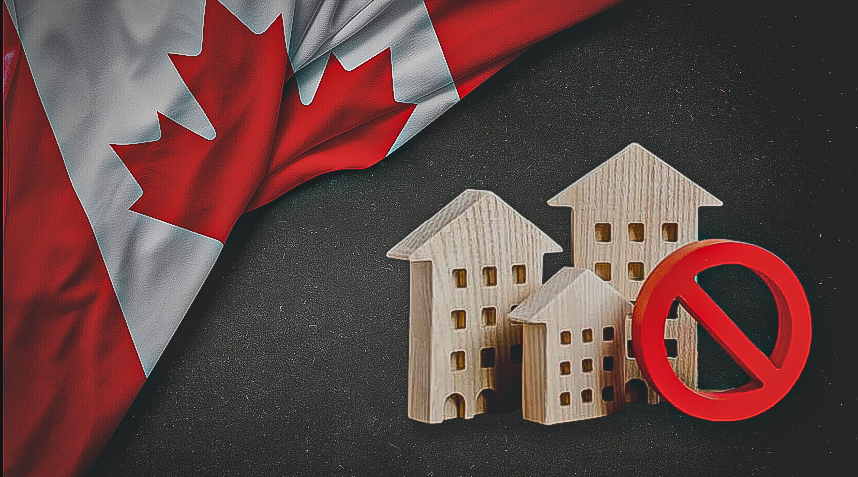Canada’s new foreign-buyer ban: Will it really solve the country’s housing crisis?
Critics question the effectiveness of banning foreigners from purchasing homes in Canada, calling it “political theatre.”
Beginning on January 1, 2023, the Canadian government enforced a two-year ban prohibiting certain foreign home buyers from buying houses throughout Canada. This ban, named the Prohibition on the Purchase of Residential Property by Non-Canadians Act, does not apply to Canadian citizens, permanent residents living in Canada, refugees, or diplomats. However, it does apply to international students and foreign workers, as well as foreign corporations and organizations.
Before purchasing a house, temporary residents, such as international students, are required to live in Canada for 244 days for five consecutive years, and are prohibited from purchasing properties over $500,000. As for foreign workers, they must work in Canada for at least three years before purchasing a property. Apart from these requirements, international students and workers can only purchase a maximum of one property at a time. However, only buildings with one to three dwelling units are counted under the ban. Homes in areas of low population are exempt, as are vacation homes.
Non-Canadians who disregard the ban may face a fine of no more than $10,000. This penalty may also apply to any Canadian realtor, lawyer, or resident who assists non-residents in purchasing Canadian homes. Additionally, the Superior Court of Justice has the right to sell any property that is purchased in a way that contradicts the ban.
The purpose of the ban is to try to make housing more affordable for Canadians, rather than have the real estate market be an “investment asset for foreigners,” said a spokesperson for the Deputy Prime Minister and Minister of Finance Chrystia Freeland in a CBC interview. According to the spokesperson, “Houses should be homes for Canadians to live in.”
However, some criticize the ban’s ability to mitigate the housing crisis, arguing that non-Canadian buyers make up only a minority of the housing market in the country. In the same CBC article, a chief economist at the British Columbia Real Estate Association, Brendon Ogmundson, put forth that the real cause of rising house prices is low supply and decreased interest rates, rather than foreign buyers.
Critics of Canada’s housing ban look at New Zealand for proof that banning foreigners is not an effective solution to the housing crisis. In 2018, New Zealand banned foreign buyers from purchasing homes in the country, resulting in a decrease in foreign buyers by around 2.5 percent. However, home prices continued to increase across the country, remaining above $1 million.
The Medium spoke with Alan Walks, associate professor of urban planning and geography at the University of Toronto Mississauga (UTM), on his thoughts about the current housing ban. “I think the ban on foreign home buyers is a form of political theatre, and is not rooted in sound policy-making,” he states.
Walks believes that there is insufficient evidence to prove that the increase in housing prices in Canada is linked to foreign buying. He takes Vancouver—the city with the largest percentage of foreign buyers in Canada—as an example, stating that: “In around 2016, domestic buyers made up around 99 percent of all home buyers in Vancouver.” This leaves foreign buyers with the remaining one per cent.
Notably, the ban might have implications for UTM students. Walks states, “Some foreign students who otherwise would have purchased something to live in during their stay in Canada will now be forced to compete in the already-squeezed rental market.” He adds that this competition will increase rental prices in the Greater Toronto Area.
“If our federal government were serious about doing something about housing prices, they would end the Canada Mortgage Bonds program, and directly build affordable rental housing like they used to,” concludes Walks.
Staff Writer (Volume 50) — Maryam is a third-year student completing a double major in English and Professional Writing & Communication. She started her journey with The Medium in 2022, where she’s written articles for News, Opinion, Features, and Sports. In her spare time, Maryam enjoys painting, cooking, and finding creative ways to educate people about world issues that matter to her.


